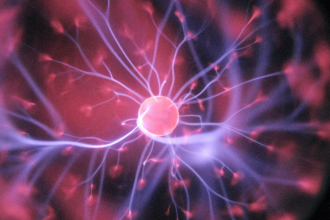Artificial intelligence (AI) has made significant gains in the ever-changing technology environment, challenging and often surpassing human skills in various disciplines. There is, however, one peculiar and enduring front on which human talent shines ever brighter: video games. Why do humans, with all of their limitations, surpass AI’s beautifully built algorithms in video gaming? This article delves into the mystery of why humans continue to outperform AI in video games.
What are some of the reasons why Humans beat AI in Video Games?
There are various reasons why humans continue to surpass AI in video games, depending on the complexity and style of the game. According to ExpressVPN humans are complex creatures but that’s just one side of the story. Potential factors include:
- The Complexity of Decision-Making
Humans have the upper hand over artificial intelligence in video games because of their foresight, intuitive decision-making, and superior adaptability, especially in games of strategic genre. Although AI systems can analyze big and complex datasets and determine the optimal course of action, many games’ unpredictable and dynamic nature makes accurate forecasting challenging for AI.
Real-time games like StarCraft II require players to quickly decide by assessing dynamic circumstances. Human intuitive decision-making and superior adaptability give them a considerable advantage over AI in managing troops’ resources and adapting to evolving scenarios in StarCraft II.
- Adaptation and Learning
Humans’ ability to learn from previous experience and adapt quickly to changing environments gives them an edge over AI in video games that require players to adjust their strategies, and each gameplay comes with its own unique experience.
The Player’s actions impact the story in narrative-driven games like “The Witcher 3: Wild Hunt,” allowing humans to connect with the story on an emotional level and make decisions that align with their own ideals. This kind of emotional connection and adaptability may be challenging for AI to adopt since it requires more than beyond simple mathematical calculations to understand and respond to complex and ever-changing narratives.
- Intuition and Creativity
One of the attributes that makes Humans unique from other creations is their creativity and intuition level. This attribute is required in most video games that AI does not have, making it difficult for them to compete with Humans.
Creativity and intuition are characteristics of human intelligence that are important in many video games. Game players frequently face unexpected obstacles, necessitating unique solutions and creative thinking. Humans contribute a level of Creativity to gaming scenarios that existing AI models cannot match. Human players demonstrate a creative flare that stretches beyond the programmed skills of AI, whether it’s inventing unconventional strategies, leveraging unexpected game aspects, or discovering unique ways to tackle problems.
Such Creativity is evident in games like sandbox games like Minecraft, where players can create their own World. The ability to develop in unexpected ways is a hallmark of human ingenuity and something that artificial intelligence has yet to master in video games.
- Reflexes and Motor skills
In action and first-person shooter games, strategic thinking, Creativity, rapid reflexes, and fine motor talents are required. In particular, games in the action and first-person shooter genres call for a well-developed strategic mind, deft hands, and lightning reflexes.
Humans outperform AI in games that require split-second decisions and precise synchronization due to their finely tuned motor control and innate reactions. The importance of human reflexes and motor skills is evident in games like Counter-Strike: Global Offensive and Overwatch. Humans are superior in those games because of their Motor skills and reflexes that elude AI.
- Understanding Context and Social Elements
In Modern games where Multiplayer gaming has become popular, Player requires teamwork, communication, and understanding of the action of their opponents. Many newer video games require complex social interactions and environmental clue interpretation. The human ability to understand complex social dynamics, to communicate effectively, and to adjust one’s strategy in response to the actions makes them superior to AI in those games.
Games like “Among Us,” speaks to the interactive and teamwork ethics of Human that elude AI.
- Changes in Game Environments
The gaming industry is ever-changing, with creators constantly introducing new aspects, difficulties, and scenarios. Humans can quickly adapt to these changes due to their flexibility and creative thinking ability. AI systems, on the other hand, may need time to adjust and understand new gaming situations.
Games as a service (GaaS) models, in which games are constantly expanded and improved, present a unique challenge to AI. Human players, driven by a desire for new experiences and curiosity, enthusiastically embrace new content, frequently exceeding AI in adapting to and mastering the growing virtual settings.
Conclusion
The game industry is evolving, and the debate is whether AI will eventually catch humans in certain games that require human intelligence and creativity. While AI has demonstrated its ability to perform strategic calculations and pattern recognition, the human spirit remains a formidable force in the game world with its intuitive leaps, creative surges, and emotional depth.
Investments and research are geared toward improving Articiary intelligence’s supremacy in video gaming. However, humans still hold the edge over AI in certain games because of their ability to adapt to complex scenarios and emotional intelligence.














